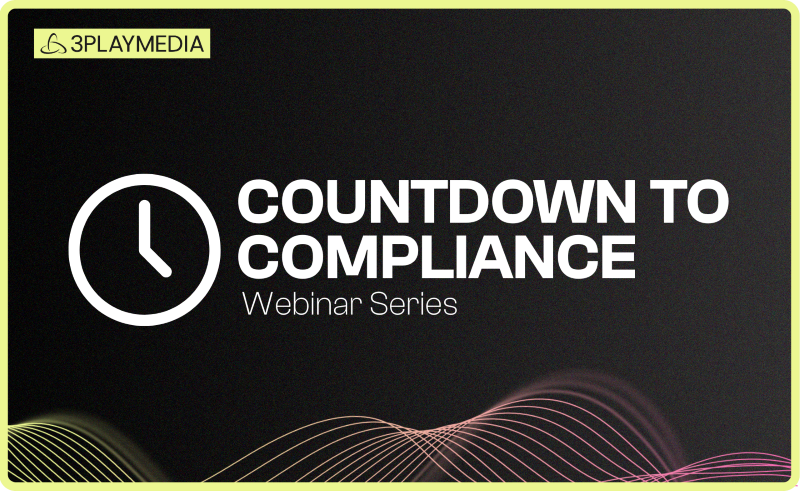Faces Behind the Screen
By 3Play Media
Faces Behind the Screen
About the Project
Inspired by the popular photo-interview project “Humans of New York,” Faces Behind the Screen was launched in 2017 to raise awareness about web accessibility.
Through photos and interviews, we’ve had the privilege of sharing many unique stories that give everyday people a face, a voice, and an opportunity to share their story and perspective.
We aim to connect the world with these stories by offering a new perspective, and hopefully, work toward shattering stigmas and preconceived notions to remind everyone that the World Wide Web should be accessible for everyone, including people with disabilities.

Browse the Library
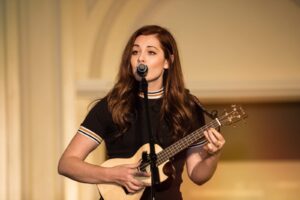
Read Mandy’s Story
“I remember sitting in this class, everybody else in the room was way older than me–adults–and they handed me the sheet music they were working on. It was the first time [I was] able to sit in a room, everybody was looking at the same thing, and I could follow along because all the words were there in black and white.”
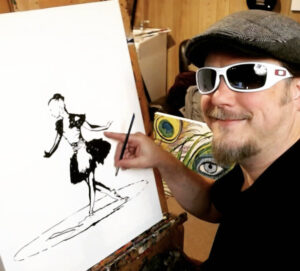
Read John’s Story
“In April of 2001, I went to a low vision specialist for the first time. My vision was 20 over 400, which is twice the legal limit for blindness. A couple of months later, it was 20 over 800. Within a month of that, they couldn’t measure my vision anymore.”
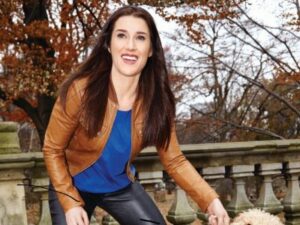
Read Rebecca Alexander’s Story
“We take so many things for granted that it’s this idea of pitying people who are losing their vision and hearing, or pitying people who use a wheelchair, or pitying people who may not have…mobility and access, that I think engenders this feeling of being better than, or being more privileged.”
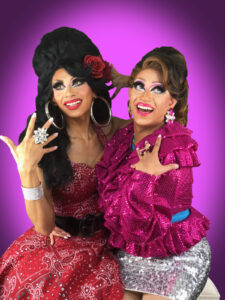
Read Deafie In Drag’s Story
“(Selena Minogue): I was Deaf since birth, and I have an older brother who taught me ASL from the beginning.
Casavina: I was supposed to be born hearing, but birth complications happened so I became deaf at an early age. I’m the only Deaf person in my family, and I grew up oral until I was taught sign language at age eight.
(Both): We both met at Gallaudet University (the only Deaf university in the world) and we were introduced by our mutual friends. We eventually started dating a few months later. Now we’ve been together for seven years.”
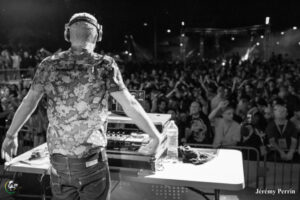
Read Nico’s Story
“My biggest role model is my mom. She’s a single mom who raised three boys. Just seeing what she went through, and how she made it – that’s a role model I wish I could become. Growing up in a deaf family was normal. There were no communication barriers. I assumed everyone had the same experience until I started making friends who were deaf and had hearing parents. They couldn’t communicate with their parents because their parents didn’t know sign language. It’s sad because they don’t really form relationships with their family members. It wasn’t until I got older that I realized how fortunate I was to be in a deaf family. My friends never had conversations at the dinner table with their parents. I couldn’t imagine not having a conversation at the dinner table because it was a huge part of my upbringing. I’m so lucky to have a deaf family and to have my experience be all-inclusive because everybody was apart of that.
Sadly, I get discriminated against as a deaf person. I think, as a deaf DJ, oftentimes people don’t trust my abilities because I can’t hear. Sometimes I won’t get hired [for a gig]. There’s nothing I can do about being deaf, but there is something I can do about being a DJ. I think it’s about exposing people to the deaf culture and what it’s all about. Hearing is not a barrier for us. When people say we can’t do things, we constantly have to prove to people that we can do anything we put our mind to.”
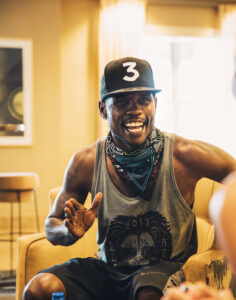
Read Matt’s Story
“I’m not so much trying to bring in more interpreters, but trying to improve the quality of music. The whole idea started from me watching interpreters. I was like, OK, I’m deaf, and I’m learning sign language… why can’t I understand the interpreter?”
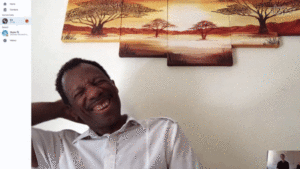
Read CJ’s Story
“I feel like I’m breaking barriers. And I really want to just get involved and work and open up those doors, so that more and more Deaf, hard of hearing, disabled actors of any sort will be able to get their foot in the door and have work in TV, film, and stage. If that’s their passion, that’s their dream, they have the right to make their dreams come true. And I want people to be sensitive enough to include those people at the table.”

Read Rikki’s Story
What is the best thing about being deaf?
“I hear screaming/crying babies less. Unfortunately, sometimes, I can still hear them depending on how close they are, but for the most part, the sound is less for me than it would be a hearing person. Sorry, babies. I understand why you cry, but it hurts.”
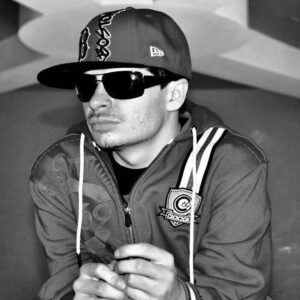
Read Stephen’s Story
Back then, you didn’t want your three-year-old, four-year-old kid listening to 2 Live Crew and Snoop Dogg. Once I saw resistance from adults – people who weren’t necessarily against rap or hip-hop, I was like, ‘I can get in trouble for this and I like it.’”
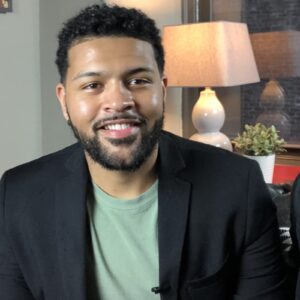
Read Aaron’s Story
“It’s a constant battle about having to prove ourselves. I have had several interviews that were absolutely not deaf-friendly at all. One interview had about seven people sitting at one table talking to me at the same time. So it’s a constant game of, do I tell them I’m deaf from the get-go? Or do I let them find out at the interview? And then I risk not having an interpreter if I do that.”
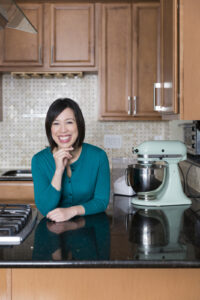
Read Christine’s Story
In 2012, Christine Ha was crowned the MasterChef winner of season three, beating over 20 contestants for the coveted title.
Throughout the season, Christine blew judges away with her delectable, beautifully plated dishes inspired by her Vietnamese roots. Despite all the challenges and obstacles thrown at her that season, Christine persevered and shattered all preconceptions as the first legally blind contestant on MasterChef.
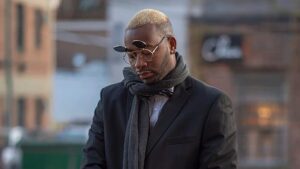
Read Aarron’s Story
Aarron Loggins grew up in Chicago, Illinois. By age three his parents realized that he was hard of hearing, and the family was shocked. They were trying to say, “How do we communicate with this kid?”
At first, when they found out, they tried different sounds at home. When Aarron didn’t respond, they took him to an audiologist where they found out that he was deaf.
“So at age three, they put me into preschool with all different people who were deaf or hard of hearing. That’s when I started to learn sign language from there. But I don’t know if it’s American Sign Language or Signed English, because it was back in the ’80s so we didn’t know the term American Sign Language until I got older.”
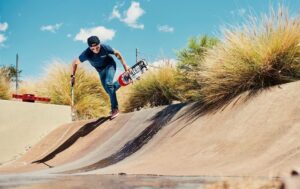
Read Justin’s Story
Justin Bishop is a skateboarder through and through. Even when he lost his vision, he refused to give up his greatest passion: skateboarding. We had the opportunity to chat with Justin about what it’s like to skateboard blind. Check out part one of the interview below and stay tuned for more.
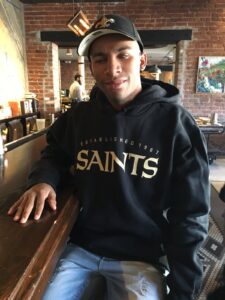
Read Marvin’s Story
“As a child, I was very athletic. I was very gifted when I was playing sports, even before I lost my vision. I loved playing football. The first football team I ever played on was the Conshohocken Bears. My uncle got me into playing sports. That was pretty much all I did. I was more of an outdoors person. I never really sat in the house and played video games. I would hang out with my friends, just playing basketball, playing football and just getting dirty on the ground.”
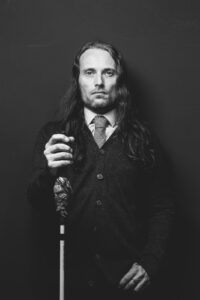
Read Ian’s Story
Ian Treherne is a blind photographer from Essex, U.K., a county in southeast England. Since childhood, Ian has always been fascinated with photography. In the mid-2000’s, Ian ventured into professional photography, uniquely capturing the beauty of the world around him.
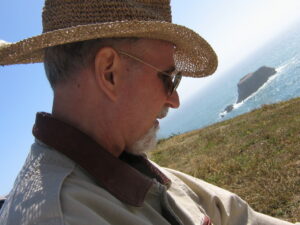
Read Pete’s Story
“I’m trained as a sculptor. I have degrees in industrial design. But then I started to go blind, and it would make more sense for me to be a sculptor. I know how to cast and foundry work and all that stuff.”
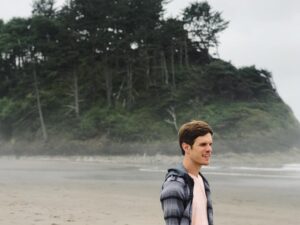
Read Mac’s Story
Mac Potts is a musician and piano technician in Vancouver, WA. You may have seen him performing in various venues across the Pacific Northwest, or perhaps you recognize him from several Cut videos, like “Blind People Tell Us Which Questions Annoy Them the Most.”
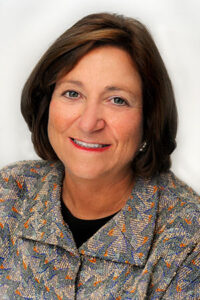
Read Donna’s Story
In 1992, Donna Sorkin received a cochlear implant, which completely transformed the trajectory of her life.
Donna grew up with nearly normal hearing, but over the years, her hearing began to decline.
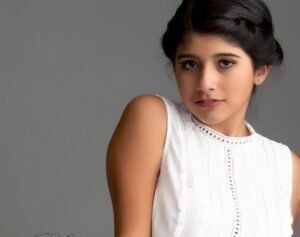
Read Kaylee’s Story
Kaylee Lartigue is an activist who advocates for those in the Deaf community. She started Deaf Girl Evolution, and through this platform, she strives to empower her peers to advocate for deaf and hard of hearing people.
And it doesn’t end there.
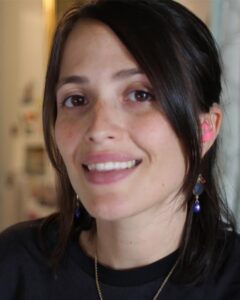
Read Jessica’s Story
I am the first Deaf person in my family. When I was in the first grade my parents found out that I had a hearing loss. But we have no idea what might have caused it. It was just something that sort of happened.
It’s hard to remember exactly how much sound I could/couldn’t hear back then. But from what I know, when I was younger, I had a mild hearing loss. Then over time, my hearing just kept dropping. Now I have a severe/profound-ish hearing loss.


